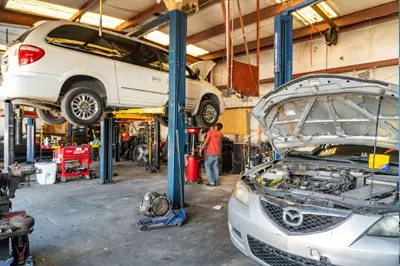All Categories
Featured

Your cars and truck's engine is the heart of your automobile, and keeping it in top problem is vital for optimal performance and longevity. Routine engine tune-ups are a fantastic way to maintain your car's health, improve fuel efficiency, and stay clear of expensive repairs down the roadway. Whether you're an automobile lover or someone that simply desires to maintain their car running efficiently, these engine tune-up pointers will certainly help you get the most out of your vehicle.
- Change Spark Plugs. Trigger plugs play an important role in starting your engine and ensuring smooth burning. Gradually, ignition system can become filthy or broken, bring about misfires, reduced fuel effectiveness, and rough idling.
Throughout an engine tune-up, inspect and replace your stimulate plugs if needed. Most automobiles require new stimulate plugs every 30,000 to 100,000 miles, depending on the kind. Consistently changing ignition system guarantees proper ignition and optimal engine performance.
- Inspect and Tidy the Air Filter. The air filter prevents dust, dust, and debris from entering your engine. A clogged up or filthy air filter restricts air flow, causing your engine to function tougher and burn more fuel.
Check your air filter throughout a tune-up and replace it if it's unclean. In dusty atmospheres or areas with heavy contamination, you might need to transform the air filter a lot more regularly. A clean air filter can boost gas effectiveness and prolong the life of your engine.
- Evaluate and Replace Belts and Hose Pipes. Belts and hoses are important for numerous engine functions, such as powering the generator, water pump, and air conditioning system. With time, these parts can split, fray, or wear, possibly bring about malfunctions.
During a tune-up, check belts and hose pipes for indicators of wear and replace them if needed. Changing these components proactively can conserve you from costly fixings and avoid unexpected failures.
- Tidy the Gas System. Your fuel system, consisting of the gas injectors and gas lines, can collect dust and carbon down payments in time, lowering engine effectiveness. Cleansing the gas system during a tune-up aids enhance performance and gas economic climate.
You can utilize a gas system cleaner or have an expert mechanic execute an extra thorough cleansing. This step is especially vital for older cars or automobiles that often drive in stop-and-go website traffic.
- Check the Battery and Charging System. A healthy battery is crucial for beginning your engine and powering electrical elements. During a tune-up, examine the battery terminals for deterioration and ensure the links are tight.
Examine the battery's voltage and replace it if it shows indications of weak point. In addition, have the alternator and charging system tested to guarantee your battery remains charged throughout operation.
- Modification the Engine Oil and Oil Filter. Oil changes are a basic part of engine maintenance. Engine oil lubes moving parts, decreases friction, and helps manage engine temperature. Gradually, oil comes to be infected and sheds its effectiveness.
Throughout a tune-up, change the engine oil and oil filter to keep your engine running smoothly. Follow your car's maker recommendations for oil kind and adjustment intervals.
- Examine the Air Conditioning System. The air conditioning system stops your engine from overheating. In time, coolant can weaken or come to be contaminated, lowering its efficiency.
Examine the coolant level and problem during a tune-up, and flush and replace it if needed. Check the radiator, water pump, and hoses for leaks or damage. A well-maintained air conditioning system helps your engine operate at the right temperature and prevents getting too hot.
- Test the Ignition System. A faulty ignition system can trigger starting issues and decreased engine efficiency. During a tune-up, examine the ignition coils, supplier cap, and blades (if suitable) Change any kind of components that reveal indicators of wear or damages to make certain smooth and trusted engine operation.
- Pay Attention for Unusual Sounds. During a tune-up, take the chance to listen for any type of uncommon engine noises, such as knocking, ticking, or hissing. These audios can suggest underlying issues, such as shutoff troubles, loosened components, or exhaust leakages. Attending to these troubles early can prevent much more extensive damages.
- Use High Quality Parts and Fluids. When performing an engine tune-up, constantly make use of high-grade parts and fluids that meet your vehicle producer's requirements. Affordable or wrong parts can jeopardize your engine's performance and reliability.
Verdict: A Well-Tuned Engine is Key to Longevity. Regular engine tune-ups are crucial for preserving your auto's performance, effectiveness, and reliability. By changing used parts, cleansing crucial systems, and addressing prospective concerns, you can keep your engine running efficiently for years ahead. Whether you're doing it yourself or relying upon a relied on technician, buying tune-ups is a wise method to shield your automobile and take pleasure in a more secure, smoother adventure.
Latest Posts
Your Trusted Auto Repair Shop in Montclare
Idaho Fence – Built to Last
Trusted by Industries for Fast, Low-Maintenance Shower Room Renovations
